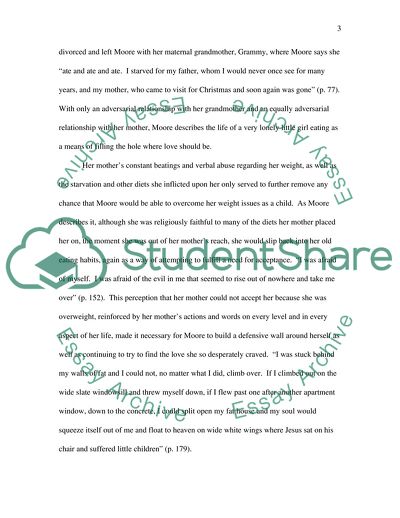Judith Moores Fat Girl Essay Example | Topics and Well Written Essays - 1500 words. https://studentshare.org/literature/1703612-obesity-in-women-based-on-the-book-fat-girl
Judith Moores Fat Girl Essay Example | Topics and Well Written Essays - 1500 Words. https://studentshare.org/literature/1703612-obesity-in-women-based-on-the-book-fat-girl.


